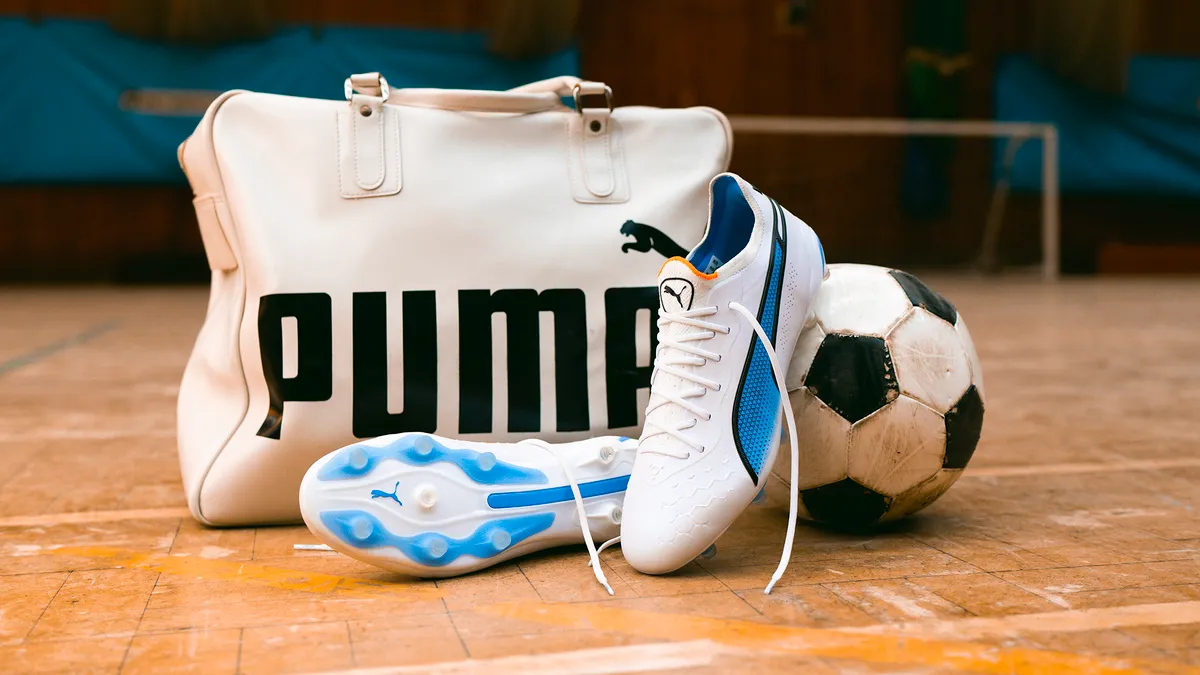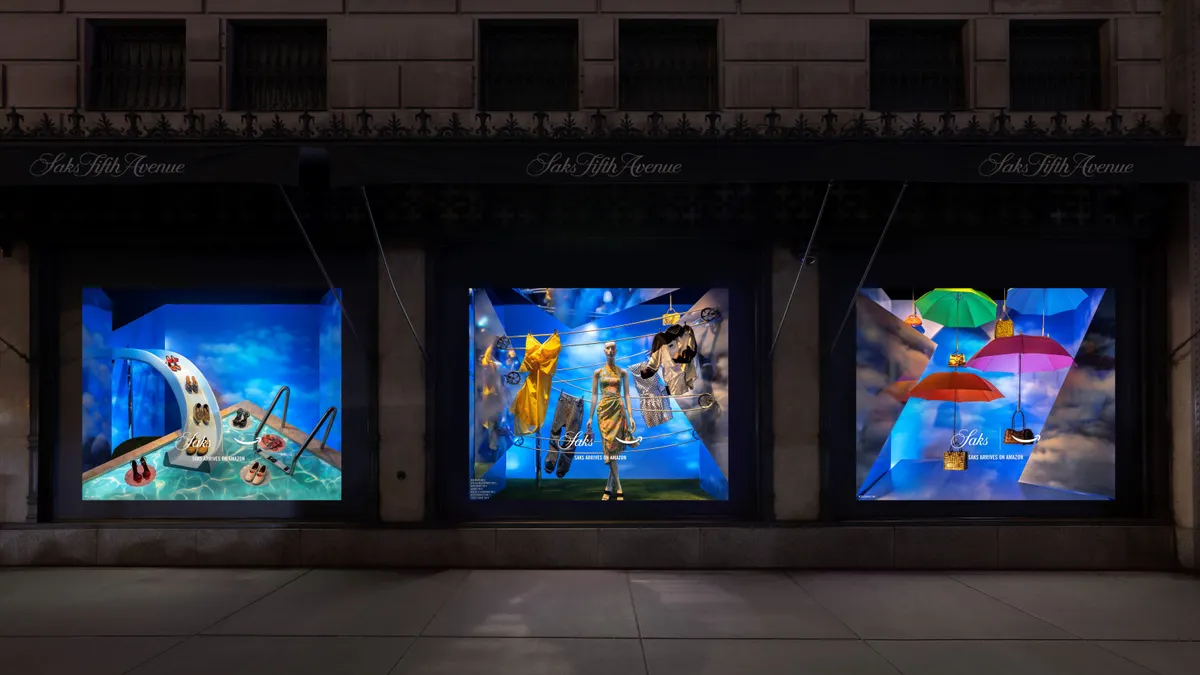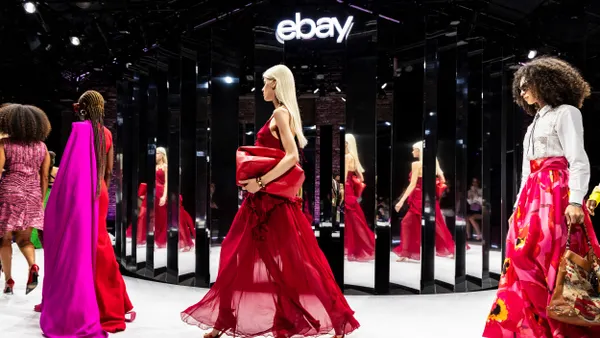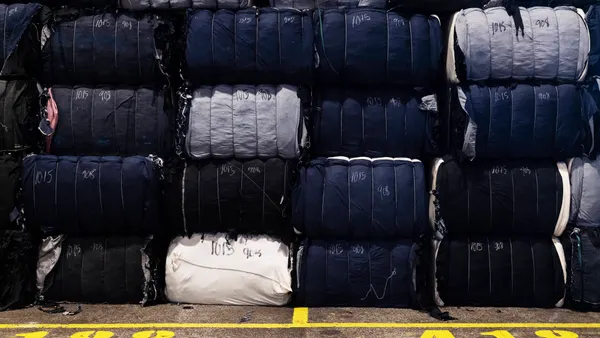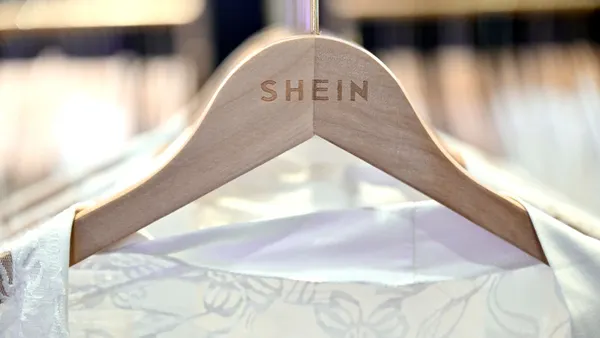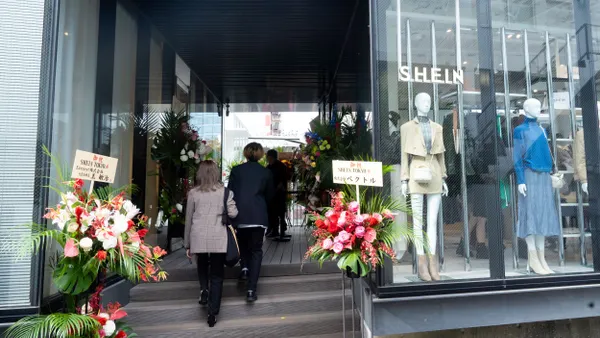Dive Brief:
- Puma began selling a kangaroo-free version of its classic King soccer cleat last week, the company announced.
- The Puma King Supercharge edition, which will be available through Puma stores, Puma.com and via specialist soccer retail stores, replaces components previously made from kangaroo leather with a proprietary nonanimal upper material called K-Better. The company said the upper contains at least 20% recycled material.
- In a press release about Puma’s decision, the Center for a Humane Economy noted that “many soccer cleat manufacturers — including the biggest names, such as Nike, Adidas, and, before now, Puma — have long propped up this lucrative industry.”
Dive Insight:
The core element of Puma’s new proprietary K-Better material will be nylon, said Puma spokesperson Luke Haidarovic in an email to Fashion Dive. Although Haidarovic declined to give out product sales numbers for its King cleats, soccer cleats made from kangaroo skins comprise approximately 70% of the demand for commercially slaughtered kangaroos, according to the Center for a Humane Economy.
In 2019, Italian soccer brand Diadora pledged to go kangaroo-free, but Nike and Adidas continue to use kangaroo skins in certain soccer products. The continued use of kangaroo skin led to a 2022 protest in front of Nike’s store in New York’s SoHo neighborhood. The brand is also not able to sell some of its soccer cleats in California due to a state ban on the sale of kangaroo skins and parts.
Notably, California is the biggest soccer market in the U.S., said Wayne Pacelle, president of the Center for a Humane Economy. “We're making the argument that you don't want to bifurcate your marketing and distribution strategies,” he said. “If you can't sell the Puma King in California, or the equivalent shoes by Nike and Adidas, you're going to have complications. So why don't you just go ahead and use these human-made fabrics?”
Pacelle said this was a major victory for his organization’s Kangaroos Are Not Shoes campaign.
Commercial kangaroo products, which are exported from Australia to more than 60 overseas markets, are worth about $200 AUD million annually, according to Australian news organization The Canberra Times.
A bill introduced into Congress called the Kangaroo Protection Act of 2021 would prohibit the sale of all kangaroo products in the U.S., but died in committee. A similar bill was introduced in February in New Jersey. The Center for a Humane Economy has additionally worked to introduce legislation banning the import and sale of kangaroo products at both the federal and state levels.
Yet as new leather alternatives are developed from sources, including fermented bacteria, banana leaf, coffee pulp waste, and mushroom-derived mycelium, the demand for kangaroo-free products may increase.
Pacelle’s organization, which tracks the use of kangaroo leathers in commercial products, said the skins are also used by New Balance, Mizuno, L.L. Bean, Lucchese, while other companies, including Gucci, Prada, Versace, Chanel, H&M and Paul Smith have previously pledged to discontinue their use.



